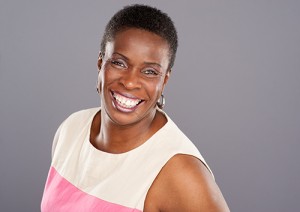Written by Zina Arinze
Fantastic news – and proof that sanity does eventually (begin to) prevail in the world of Divorce and Families: As a result of the Child First Campaign bringing the issue of survivors of domestic abuse being cross examined by their abusers in the family courts and the subsequent Guardian investigation into the issue, the Government have announced an emergency review to find the quickest way to ban abusive ex-partners from cross examining their victims.
Women’s Aid say that:
“This will go a long way to ensuring that survivors of domestic abuse are properly able to advocate for the safety of their children when in the family courts and ultimately will help to ensure that there are no further avoidable child deaths as a result of unsafe child contact.”
The President of the Family Division and Head of Family Justice, Sir James Munby has been key in helping make this review happen:
“I have expressed particular concern about the fact that alleged perpetrators are able to cross-examine their alleged victims, something that, as family judges have been pointing out for many years, would not be permitted in a criminal court. Reform is required as a matter of priority. I would welcome a bar…I am disappointed by how slow the response to these issues has been and welcome the continuing efforts by Women’s Aid to bring these important matters to wider public attention.”
The situation around domestic abuse is complex.
Divorce Recovery Coach Zina Arinze MIOEE has had personal experience of domestic abuse, and was one of the speakers at the Professional African Women speak out against Domestic Abuse and Violence conference in London on 15th of July 2016.
“Domestic violence, also called domestic abuse, includes physical, emotional and sexual abuse in couple relationships or between family members, including sadly, children.
It cuts across race, social economic class, gender and faith. And for Black women, dare I say Professional African women, it’s an even bigger problem. Research suggests that Black women are almost three times as likely to experience death as a result of DV than White women.
In addition, it is well documented that religious beliefs and negative views about mental health services also factor into why many Black women remain with abusive partners. African women in particular are more likely to rely on religious guidance and faith-based practices when working through relationship issues. And rightly or wrongly these religious beliefs often discourage divorce, encourage forgiveness and occasionally condemns those who seek mental health support/psychiatric help instead of relying on their faith. These as well as other factors have informed our perceptions of what constitutes abuse thereby greatly shaping our paradigms.” Zina Arinze: Post-Divorce Reinvention Queen
Women’s Aid will continue to work closely with the Government on this review and see that the voices of survivors are central to this work. But help is still needed, through continued support from the public through the petition to Justice Secretary, Rt Hon Liz Truss MP, to ensure that there are no further avoidable child deaths as a result of unsafe child contact with a known perpetrator of domestic abuse.
Women’s Aid want to ensure that the Government know that there are 50,000 people waiting to see what action they are going to take after the review and to ensure that the family courts are a safe space for survivors of domestic abuse.
Mediation is often said to be unsuitable in domestic abuse cases - but going to court can be far more traumatic. It is important not to automatically dismiss mediation - perhaps shuttle mediation or online mediation - because until the law is changed, a court-based divorce is still best avoided if the physical and mental safety of the victim is kept secure in the mediation process.
In this video, Zina talks about the struggle of divorcing and the support needed – which of course is even more essential if you are experiencing a domestic abuse scenario.
Zina Arinze is a Post-Divorce Reinvention Coach and founder of www.believeandliveagain.com,which helps divorced women to regain their confidence, self-esteem and start living again.
When you attend a Mediation Information and Assessment Meeting (MIAM) you attend on your own, this allows you the opportunity to discuss your situation to see if mediation is suitable. Mediation is a voluntary process and you will not be asked to meet in the same room if you feel threatened in any way.
